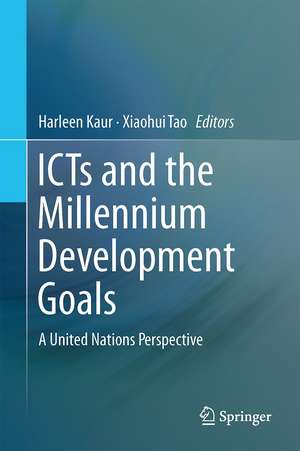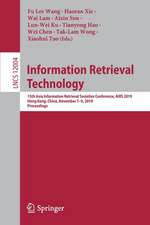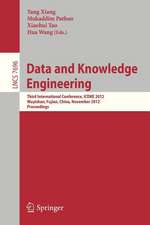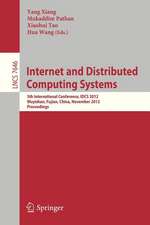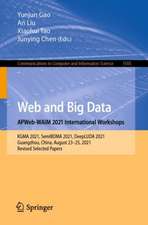ICTs and the Millennium Development Goals: A United Nations Perspective
Editat de Harleen Kaur, Xiaohui Taoen Limba Engleză Hardback – 7 mai 2014
The book also builds on the thesis that a strong connection between competencies in mathematics, science, and information communication/technology is required to build logical concepts and critical thinking skills. It also examines the opportunities and barriers of promoting students’ learning skills, including communication, cooperation, collaboration and connection using the Wiki tool under the blackboard platform. Finally, the book also highlights the challenges involved in application of ICT in education. This is significant for educators in order to surmount these obstacles and consequently successfully incorporate ICT into the educational system.
The chapters present the relevant literature on ICTs and the perceived barriers to ICT integration in basic education. They also focus on the implications of incorporating ICT in the basic educational system. The challenges confronting the integration of ICT in education are equally identified with a view to ensuring a more efficient application of ICT in attaining education for all.
| Toate formatele și edițiile | Preț | Express |
|---|---|---|
| Paperback (1) | 644.81 lei 6-8 săpt. | |
| Springer Us – 3 sep 2016 | 644.81 lei 6-8 săpt. | |
| Hardback (1) | 656.36 lei 6-8 săpt. | |
| Springer Us – 7 mai 2014 | 656.36 lei 6-8 săpt. |
Preț: 656.36 lei
Preț vechi: 820.45 lei
-20% Nou
Puncte Express: 985
Preț estimativ în valută:
125.61€ • 130.65$ • 103.70£
125.61€ • 130.65$ • 103.70£
Carte tipărită la comandă
Livrare economică 14-28 aprilie
Preluare comenzi: 021 569.72.76
Specificații
ISBN-13: 9781489974389
ISBN-10: 1489974385
Pagini: 284
Ilustrații: XII, 271 p. 35 illus., 15 illus. in color.
Dimensiuni: 155 x 235 x 21 mm
Greutate: 0.72 kg
Ediția:2014
Editura: Springer Us
Colecția Springer
Locul publicării:New York, NY, United States
ISBN-10: 1489974385
Pagini: 284
Ilustrații: XII, 271 p. 35 illus., 15 illus. in color.
Dimensiuni: 155 x 235 x 21 mm
Greutate: 0.72 kg
Ediția:2014
Editura: Springer Us
Colecția Springer
Locul publicării:New York, NY, United States
Public țintă
ResearchCuprins
Learning, Communication and Interaction via Wiki: An Australian Perspective.- ICTs Diffusion Trajectories and Economic Development.- An Empirical Analysis of Gendered Differences in MDG Awareness Across Sources of Information.- Global Evidence of Age-Structured Differences in MDG Awareness Among Users of Personal Computers.- Finding Weighted Positive Influence Dominating Set to Make Impact to Negatives.- A Conceptual Interdisciplinary Plug-and-Play Cyber Security Framework.- Mobile Phone and Development: Synthesis on New Misuse Perspective.- Incorporating ICTs in Schools for Effective Education.- Implementing ICT in Schools in a Developing Country.- Information and Communication Technology (ICT) Applications for Customer Relationship Management (CRM).- Information Retrieval Using Rough Set Approximations.- The Role of ICTs in Poverty Eradication.- ICT-Based Trade Facilitation and the MDGs.- A Case Study: From Game-Programming to ICTs.- Challenges for Mobile Governance in India.
Recenzii
From the book reviews:
“The contributors have presented the relevant literature on ICTs and the perceived barriers to ICT integration in basic education. … It is recommended for direct reference by officials of UN agencies and other multilateral and bilateral funding bodies. It will also interest researchers, students, and faculty in the associated subject domains.” (C. S. Arora, Computing Reviews, February, 2015)
“The contributors have presented the relevant literature on ICTs and the perceived barriers to ICT integration in basic education. … It is recommended for direct reference by officials of UN agencies and other multilateral and bilateral funding bodies. It will also interest researchers, students, and faculty in the associated subject domains.” (C. S. Arora, Computing Reviews, February, 2015)
Textul de pe ultima copertă
This book attempts to create awareness about the UN-MDGs and how various ICT can be harnessed to appeal to different demographics. Current empirical evidence suggests that MDG awareness is relatively low particularly in developed countries, and that the levels of MDG awareness vary considerable across socioeconomic variables or demographics from United Nations perspective. It also examines how ICT can be used to bring about technical and social innovations strengthen livelihoods, support economic development, water and climate resilience and improve the education and health sectors and enhance development opportunities. Several studies are highlighted that reinforce the view that government support and private sector expertise and funding are important factors in ICT-based e-government solutions in developing countries.
The book also builds on the thesis that a strong connection between competencies in mathematics, science, and information communication/technology is required to build logical concepts and critical thinking skills. It also examines the opportunities and barriers of promoting students’ learning skills, including communication, cooperation, collaboration and connection using the Wiki tool under the blackboard platform. Finally, the book also highlights the challenges involved in application of ICT in education. This is significant for educators in order to surmount these obstacles and consequently successfully incorporate ICT into the educational system.
The chapters present the relevant literature on ICTs and the perceived barriers to ICT integration in basic education. They also focus on the implications of incorporating ICT in the basic educational system. The challenges confronting the integration of ICT in education are equally identified with a view to ensuring a more efficient application of ICT in attaining education for all.
The book also builds on the thesis that a strong connection between competencies in mathematics, science, and information communication/technology is required to build logical concepts and critical thinking skills. It also examines the opportunities and barriers of promoting students’ learning skills, including communication, cooperation, collaboration and connection using the Wiki tool under the blackboard platform. Finally, the book also highlights the challenges involved in application of ICT in education. This is significant for educators in order to surmount these obstacles and consequently successfully incorporate ICT into the educational system.
The chapters present the relevant literature on ICTs and the perceived barriers to ICT integration in basic education. They also focus on the implications of incorporating ICT in the basic educational system. The challenges confronting the integration of ICT in education are equally identified with a view to ensuring a more efficient application of ICT in attaining education for all.
Caracteristici
Measures the efficiency of the millennium development goals (MDGs) across different socioeconomic variables and demographics Offers new strategies considering ICT for organizations in the field of development cooperation Provides development policy guidelines for ICT and Information Society Includes supplementary material: sn.pub/extras
